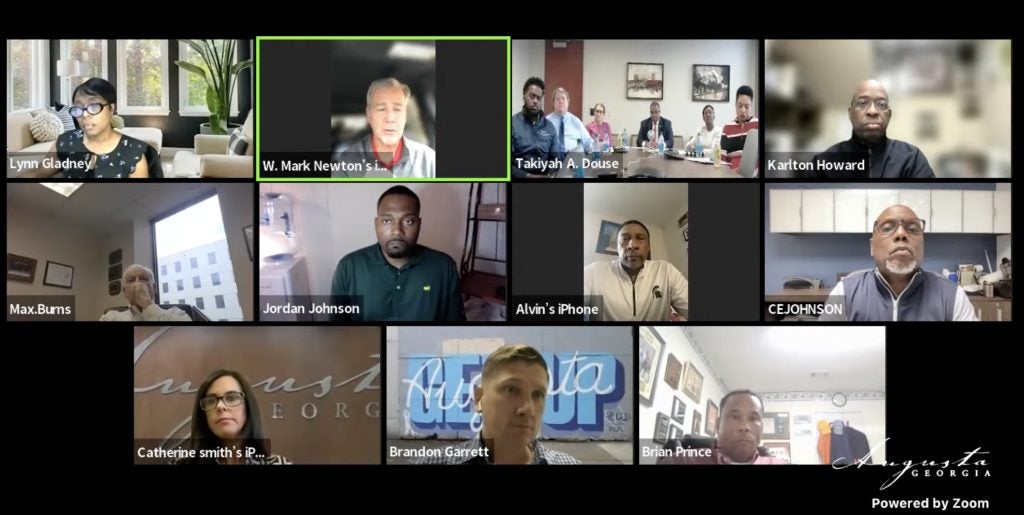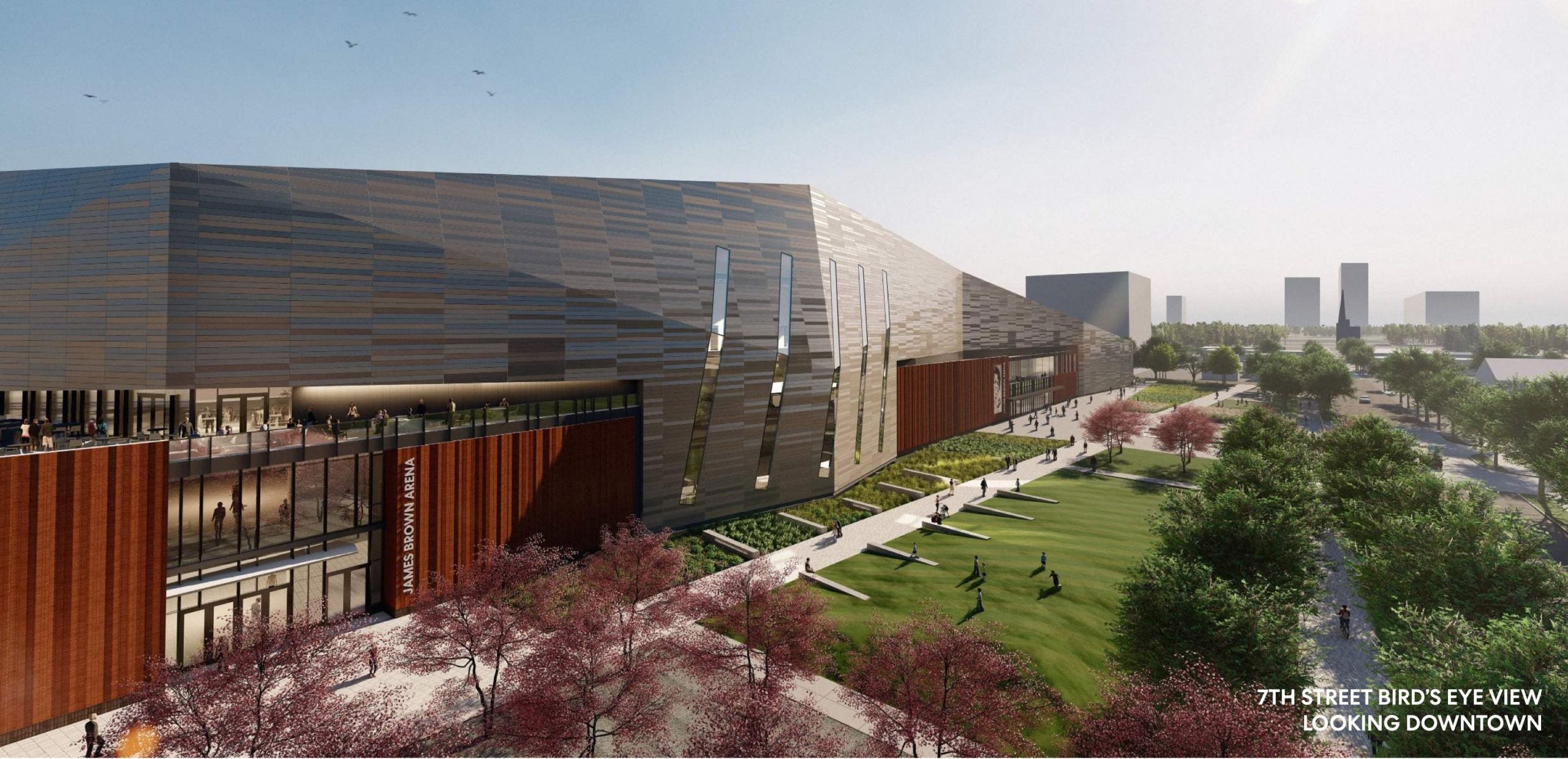A new sales tax is in the works to pay for construction of a civic center downtown to replace the aging James Brown Arena.
The 0.5% tax needs approval by the state legislature as well as Augusta voters, who would be asked in a November referendum, city officials said Wednesday.
The “C-SPLOST” or Coliseum Special-Purpose, Local-Option Sales Tax topped the agenda at a meeting between Augusta commissioners, legislators and coliseum authority members.
It was “one of the most popular topics,” said Mayor Garnett Johnson, who conducted the meeting.
Chairman and vice-chairman of the Augusta-Richmond County Coliseum Authority, Cedric Johnson and Brad Usry, vowed to find a new funding source for the arena after voters defeated a November 2021 referendum to fund it by raising property taxes.
“We’re not asking for a tax increase. We’re asking for the voters to give us a sales tax,” Usry said Wednesday.
MORE: Augusta Planning Commission recommends approval for proposed south Augusta subdivision

Johnson said the sales taxes wouldn’t be the only source of revenue for the project. Oak View Group, which merged with arena manager Spectra in 2021, contributed millions to Savannah’s new arena, he said. Naming rights, per-ticket fees and other charges could supplement funding, he said.
Priced in 2021 at $235 million, the proposed arena would seat more than 11,000, an increase of around 3,000 seats. It would include luxury boxes and a ballroom, rooftop terrace, park and convention space, connected to the adjacent Bell Auditorium by a wing of shared amenities.
The late Rep. Wayne Howard was lead sponsor of House Bill 1524 last March, along with Reps. Gloria Frazier, Brian Prince, Sheila Nelson and Mark Newton. Filed after crossover day during last year’s session, the bill amends state law to allow counties to impose additional sales taxes for coliseum or civic-center facilities. It also allows the referendum to include issuing bonded debt to be paid from the new tax.
The bill needs Rep. Mark Newton and Sen. Max Burns to shepherd it through the state House and Senate, while city lobbyist Marci Rubensohn has already been working on it, Usry said. Rubensohn is with Holland and Knight, the firm Augusta hired last year to represent it in Atlanta.
Commissioner Jordan Johnson said many remain concerned about Augusta having no arena during the construction. The Bell will be unusable for nine months, but 30 months of work on the arena won’t start until after the Bell reopens, Usry said.
Burns said the Augusta delegation “is comfortable” with the proposal and will canvas the House and Senate for support. Newton said the project is a “heavy lift” while the “need is so great.”
“I think the plan is ambitious, but also very doable,” Newton said.
Frazier said she was concerned about minority participation in the construction projects and about the referendum’s chances as the polls. Augusta has no other elections on the November 2023 ballot.
MORE: Burke County to benefit from $234M in federal cash for rural broadband
“What are we going to do differently from what we did the last time we put this on the ballot?” she said.
Usry said organizers were “already budgeting money” for a marketing campaign and had a $150,000 commitment from an area media group.
At 8%, Augusta-Richmond has among the highest but not the highest sales tax rate in Georgia. Only areas of Fulton, DeKalb, Clayton and Muscogee counties charge more, at 8.9% and 9%.
Augusta levies a 1% sales tax each for transportation, capital projects and to offset property taxes. The school system applies another 1% and the state sales and use tax is 4%. The tax is applied at the cash register when a consumer buys goods and some services, such as hotel stays.
House Bill 1524 by augustapress
Susan McCord is a staff writer with The Augusta Press. Reach her at susan@theaugustapress.com











